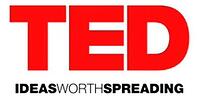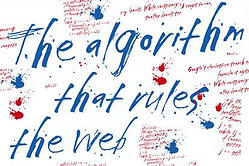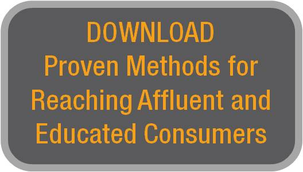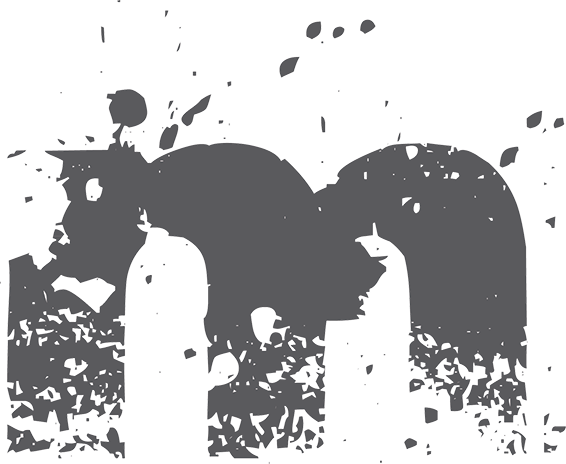If you aren’t paying attention to the Internet, you should. This goes for everyone, not just marketing gurus and advertising professionals.
Until I worked in advertising, I always thought the Internet was a library Mecca for information that was free (for the most part) and available to the public. But it’s so much more than that.
Historically, newspapers were the information gatekeepers, and editors were ethically responsible for providing unbiased content. The Internet, on the other hand, now has  everyone in their own filtered information bubble. Algorithms don’t ensure you have a balance of information. They bring you content you will like, click, share and find most comfortable based on your first click or preferred viewing settings. Don’t believe me? Type a search term like “Justin Bieber” into Google on your work computer. Then go to your neighbor’s computer and type in the exact same phrase. I bet you the top 10 results aren’t all the same and in the same order.
everyone in their own filtered information bubble. Algorithms don’t ensure you have a balance of information. They bring you content you will like, click, share and find most comfortable based on your first click or preferred viewing settings. Don’t believe me? Type a search term like “Justin Bieber” into Google on your work computer. Then go to your neighbor’s computer and type in the exact same phrase. I bet you the top 10 results aren’t all the same and in the same order.
With this in mind, I found the TED talk below interesting and worth checking out. It’s less than 12 minutes, so grab a cup of coffee and watch it during your next break.
According to this video, former Google CEO, Eric Schmidt, once said, “It will be very hard for people to watch or consume something that has not in some sense been tailored for them.” This filter bubble is your personal unique universe of info you live in online. You don’t decide what makes the cut due to the computer algorithms that primarily analyze what you click on first. Google and Facebook are just two examples of sites using an algorithm to deliver content, but they aren’t the only ones. Yahoo News, the biggest news site on the Internet, is now personalized, which means the news delivered to one person is different than the news delivered to another. The Huffington Post, New York Post and New York Times are starting to incorporate customization, too. Civic responsibility and transparency are not programmed into these algorithms and people can lack a so called ‘balanced’ information diet if they only view what the algorithms have deemed relevant for them. It’s important that we continue to see content from other points of view that challenge our beliefs.
content, but they aren’t the only ones. Yahoo News, the biggest news site on the Internet, is now personalized, which means the news delivered to one person is different than the news delivered to another. The Huffington Post, New York Post and New York Times are starting to incorporate customization, too. Civic responsibility and transparency are not programmed into these algorithms and people can lack a so called ‘balanced’ information diet if they only view what the algorithms have deemed relevant for them. It’s important that we continue to see content from other points of view that challenge our beliefs.
Don’t get me wrong, I’m not anti-Internet, technological advances or digital marketing. However, with so much negative hype predicting the demise of newspapers and the contrasting positives about digital, it was refreshing to remember, “Huh, maybe we need information gatekeepers today just as much as we did more than 200 years ago.” What I’m saying is, sometimes I don’t want someone, or something, suggesting what I want to read now strictly based on what I read before. Sometimes I want something completely different, or am actually looking for the antagonistic viewpoint.
 Why is this relevant for advertisers? Newspapers are not going anywhere, at least not anytime soon. As consumers realize they need a balanced information diet they will continue to look for the best local and national media sources to fit their lifestyle. Information is power, and there is value in associating your brand with credible, local content found in newspapers or their corresponding newspaper.coms.
Why is this relevant for advertisers? Newspapers are not going anywhere, at least not anytime soon. As consumers realize they need a balanced information diet they will continue to look for the best local and national media sources to fit their lifestyle. Information is power, and there is value in associating your brand with credible, local content found in newspapers or their corresponding newspaper.coms.
When you do that, you reach an audience that is both educated and affluent. If you want more information on that, check out our white paper titled ‘Proven Methods for Reaching Affluent and Educated Consumers’ to learn how you can reach these audiences to ensure the success of your products or services.
RELATED POSTS:
- Applying the Amazon Principles to Online Publishing
- How Social Media Has Changed Advertising
- Online News Site ‘Huffington Post’ Eliminates Anonymous Comments
- What If You Had Given Up Newspapers for Lent?
- Beginners Guide to Search Engine Optimization (SEO)
Image Credit: Jennawaites.com, santabanta.com
Nicole Chejade is a senior account specialist at Mediaspace Solutions. Her advertising experience includes broadcast, print and digital marketing with a focus in media planning, client services and account management. You can connect with Nicole on LinkedIn or Twitter.




